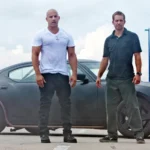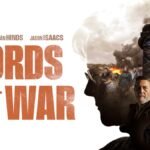Now Reading: AI Voice Wars: How Hollywood Dubbing Artists Are Fighting Back in 2025
-
01
AI Voice Wars: How Hollywood Dubbing Artists Are Fighting Back in 2025
AI Voice Wars: How Hollywood Dubbing Artists Are Fighting Back in 2025
AI Voice Wars: How Hollywood Dubbing Artists Are Fighting Back in 2025
Remember that iconic Pretty Woman scene where Julia Roberts hops into Richard Gere’s swanky Lotus? Well, for millions of German viewers, that wasn’t Julia Roberts at all – it was Daniela Hoffmann, the voice that’s been bringing Roberts to life for German audiences for decades. But now, these unsung heroes of cinema are facing their biggest plot twist yet: artificial intelligence threatening to nick their jobs faster than you can say “dubbed version”.
The Hidden Stars Behind Hollywood’s Global Voice
I’ll never forget watching Die Hard in Berlin back in ’19 – hearing Bruce Willis speak perfect German was proper mind-bending. That’s when I learned about the fascinating world of dubbing artists, the secret sauce behind Hollywood’s global success.
Worth a whopping 3bn, the dubbing industry has given us gems like Cline Monsarrat (French Julia Roberts) and countless others who’ve become celebrities in their own right. But just as these artists were getting their moment in the spotlight, AI’s come along like a proper party pooper.
The AI Threat: More Than Just Lost Jobs
The 2023 Hollywood strikes might feel like ancient history now, but they were just the warm-up act. Today, AI companies are training their tech using voice artists’ recordings without so much as a “please” or “thank you”. Imagine someone nicking your voice to play any character they fancy – bit dodge, innit?
The United Voice Artists coalition (bringing together more than 20 voice acting guilds) isn’t having any of it. Their “Don’t steal our voices” campaign has gone properly viral, especially in Germany, where they take dubbing so seriously they’ve got their own Oscars for it!
Fighting Back: How Voice Artists Are Taking a Stand
Voice artists aren’t just sitting about waiting for the robots to take over. They’re pushing for new laws, organising protests, and making sure viewers know what they’d be losing. Because let’s be honest – would Pretty Woman be the same if Julia Roberts sounded like she’d swallowed a computer?
FAQ: Voice Artists vs AI
Why can’t AI just replace human dubbing artists?
While AI can replicate voices, it lacks the emotional nuance, cultural understanding, and creative interpretation that human voice artists bring to their performances. Plus, there are serious ethical concerns about using someone’s voice without permission.
How many jobs are at risk?
The 3bn dubbing industry employs thousands globally, from voice artists to directors and sound engineers. AI threatens this entire ecosystem, not just the voices you hear.
What’s being done to protect voice artists?
Voice acting unions are pushing for legislation to protect artists’ vocal rights, require consent for AI voice training, and ensure fair compensation. The United Voice Artists coalition is leading this charge globally.
The Future of Film Dubbing
As we barrel towards 2026, the fate of dubbing artists hangs in the balance. But here’s the thing – while AI might be clever, it can’t replace the human touch that makes foreign films feel like they were made just for us. These voice artists aren’t just fighting for their jobs; they’re fighting to keep the magic of cinema alive.
So next time you’re watching a dubbed film, spare a thought for the real people behind those voices. Because without them, our favourite foreign films might end up sounding about as authentic as a robot trying to tell a joke.
What do you reckon? Should AI be allowed to copy voice artists’ work? Drop your thoughts in the comments below!








